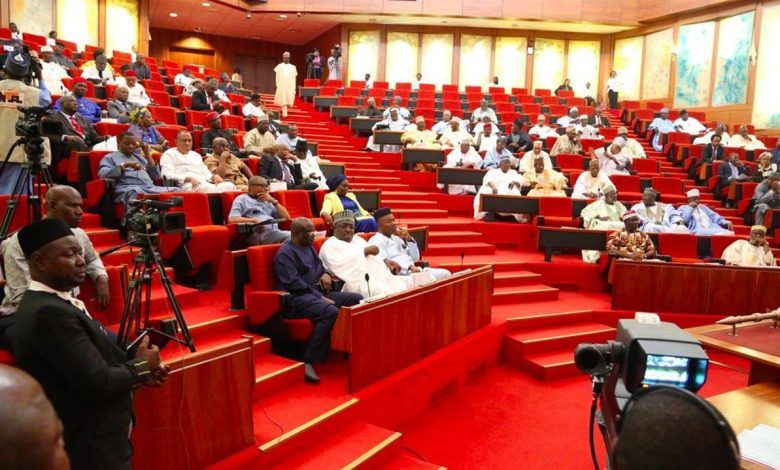
On Thursday, a member of the Senate Senator Sumaila Kawu came under fire from the senate over his claim of receiving N21m monthly in salary and allowances.
Kawu’s assertion was deemed untrue by Senate spokesperson Yemi Adaramodu.
After President Olusegun Obasanjo claimed over the weekend that the MPs set their own salaries, the debate about the reported enormous salaries of National Assembly members resurfaced.
While the National Assembly refuted the claim by Obasanjo, Kawu, a nothern senator, in an interview on Wednesday, revealed that he gets N21m monthly pay.
However, he also stated that his “monthly salary is less than N1m. After deductions, the figure comes down to a little over N600,000.”
On Thursday, however, Senate Spokesman Adaramodu refuted Kawu’s assertion in a statement.
“The Senate is required to respond to out-of-date claims of phantom salaries and personal emoluments spuriously credited to Senators on a monthly basis for the umpteenth time,” he said.
“The Revenue Mobilisation Fiscal Allocation Commission, the agency of government that fixes political officials’ salaries and allowances, has duly disclosed the monthly personal take-home of Senators.
“However, all arms of government and their personnel governors, ministers, Permanent Secretaries, Directors-General, state commissioners, and even boards and parastatals, including local government councils run their activities with running costs, and the National Assembly is no exception.
“The funds referred to by Senator Kawu Sumaila are neither his salary nor personal allowance.
The daily operations of senators’ offices and those of other statutory officials are covered by these monies. They also cover monitoring duties, community participation, and staffing for constituency offices.
“These funds aren’t fixed; the annual budget allots them, and they have to be withdrawn with evidence of actual spending. Legislators do not receive personal allowances or salaries from them.
Even during periods of severe financial hardship, the National Assembly has never received more than 1% of the total federal budget. The Nigerian Senate is an assembly of competent professionals, business executives, and administrators who are driven more by national pride than by greed.





